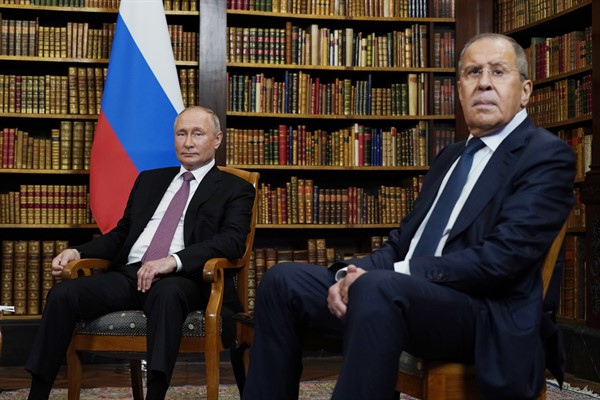There’s much that remains unknown about the violent turmoil that has engulfed Kazakhstan in recent days. But one clear fact has emerged from the mayhem: Vladimir Putin’s political doctrine has a new, now openly displayed centerpiece. On Monday, as the Russian president declared Kazakhstan’s crisis essentially resolved following a military intervention by Kremlin-led troops, he also announced the new policy. It amounts to a vow by Russia to protect autocratic rulers in former Soviet Republics when they face popular unrest.
According to Putin, the Russian-led Collective Security Treaty Organization—a security alliance formed by a subset of post-Soviet states in 1992—had helped Kazakh President Kassym-Jomart Tokayev to “normalize the situation” and “restore order.” Putin also repeated claims by Tokayev and the Kremlin that had blamed the violence on nefarious foreign actors, a common Kremlin talking point in response to domestic upheaval. “The events in Kazakhstan aren’t the first and will be far from the last attempt to interfere in the internal affairs of our states,” Putin said.
And then the Russian leader said what was once the quiet part out loud, making official his policy of backing the Moscow-friendly autocrats now ruling in some post-Soviet states: “We won’t let anyone destabilize the situation in our home and won’t allow the so-called color revolution scenario to play out.”

